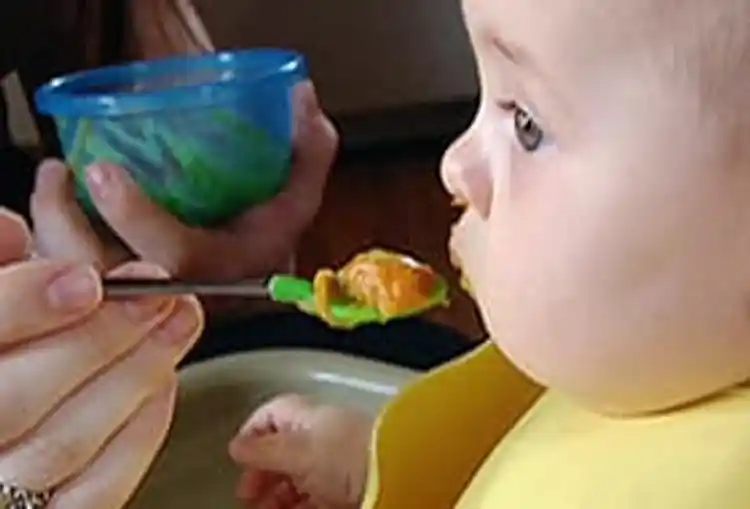Baby Food Safety

Hide Video Transcript
Video Transcript
Dr. Kimberly Manning
The switch to solid food comes with some safety alerts. We help parents prepare step by step. Rule number one
wash your hands frequently while preparing or serving baby food. Bacteria – on and around food – and all those who handle it – can spread contamination quickly and cause infants, with their fragile immune systems, to become very sick, very quickly. Consider all foods suspect. All whole fruits, vegetables, meats and poultry should be rinsed thoroughly before cutting, cooking or serving. Then cook food completely and without interruption. Always use a small baby spoon for solid foods. Rubber-coated varieties are a safe choice to avoid injury. Inspect all canned goods and jars and throw them away if you find rust or loose lids. Avoid feeding directly from the jar to prevent the possibility of contamination by bacteria from the baby's mouth. Never leave prepared foods, cheese or anything containing mayonnaise at room temperature for more than two hours. Transfer small portions to a separate dish then store and refrigerate the rest. Do not save what baby leaves behind. Cover foods before reheating and make sure they are warmed all the way through. Wipe surfaces areas clean and wash utensils after every use. Fortunately, most food-borne illnesses resolve without incident. Always call your pediatrician if your little one: shows signs of dehydration; has frequent or unusual diarrhea; becomes listless or confused; or has trouble breathing. It's not unusual for babies to gag when first eating solids. But if there seems to be any distress, pat the back and position the head to free any unwanted or excess food. It's a good idea for all parents to take a course in children's first aid and CPR. It's simple to learn and can save your baby's life. When baby is ready for finger foods, steer clear of large, solid foods like grapes, nuts or hot dogs that can easily cause choking. Make selections that are small, soft and break easily into bits. Most important
never leave your baby unattended. It's all part of staying healthy – and safe – step by step. For WebMD, I'm Dr. Kimberly Manning. 
